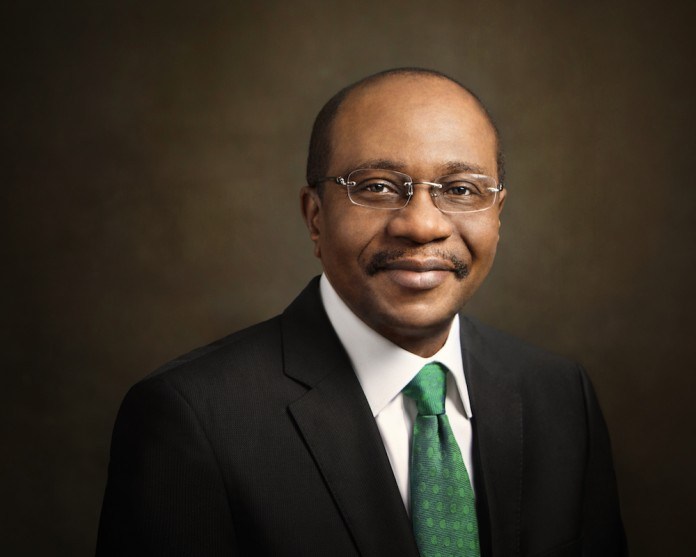
The graveyards are full of indispensable people—General Charles De Gaulle, 1890-1970. French President.
By Dele Sobowale
AN economist, who violently disagreed with me that Mr. Godwin Emefiele be retained as the Governor of Central Bank of Nigeria, CBN, was in the habit of throwing in my face this quotation which I had used several times in the past when the issue of second or third term for any officer came up. He asked me: what is so special about Emefiele that you have abandoned your former position of giving somebody else a chance after someone has had his turn for years?”
My answer to him has always been the same. “There is nothing special about Emefiele. But, there is something extra-ordinary about the timing of the end of his tenure which dictates that we retain the “devil we know instead of gambling on the ‘saint’ we don’t.” I was under no illusion that his retention would be accompanied by criticisms. Some would base their assessment of the man’s performance on principle. They act in the strong belief that the economy, especially the exchange rate component, could be managed better. I beg to differ.
Others, reacting from the standpoint of self-interest, well camouflaged, would judge his performance unfavourably because it had brought adversity to their business – a business which profited immensely from the mess we were in before reforms brought by the CBN governor. They have my sympathies and nothing more – for a simple reason. Every economic policy invariably creates winners and losers. None results in a win-win situation – much as we all would like. Those who benefited from the deliberately inflated demand for foreign exchange, which at one time drove the exchange rate to almost N500/US$1 and accumulated dollars for round-tripping, cannot possibly be happy with the governor.
However, for the majority of Nigerians who were happy to have enjoyed relatively stable exchange rate for about two years and who are apprehensive about the short and medium term global economic outlook, President Buhari has taken the best decision possible in the national interest by quickly removing this top post from the list of those which will be subjected to group and individual selfish interests pressure. I thank Buhari most sincerely for this one. May Allah give him the wisdom and will to make other appointments with the same degree of dispassion and patriotism. Emefiele is the right man at this time.
That said, I am afraid that the CBN has embarked on one programme which might create problems for all of us. Emefiele’s detractors might soon be telling us, his admirers, “we told you”. The CBN’s policy on cotton and textiles and the billions now allocated to promoting higher production of cotton, in a bid to restore Nigeria’s textile industry can only at best be regarded as the right policy but at the wrong time. At worst, it might even become the wrong policy at the wrong time and it might come to haunt Emefiele by the middle of his second term. My guess is that the country will lose billions of naira on the programme and lose more ground with respect to food security with each passing year.
Emefiele and his colleagues at the CBN, it must be admitted, have had to undertake extra duty in formulating fiscal policies which ordinarily belong to the Executive branch. But, with mostly economic illiterates managing the economy under the Vice President, and with no discernible and coherent fiscal policy framework, the CBN had encroached on what is really not its business. For instance, it was the CBN, not the Ministry of Finance, which announced the list of items prohibited as imports. Anyone following closely the trade war between the United States and China would notice that neither the US Federal Reserve Bank, nor the Chinese Bank had said a word about tariff increases. President Trump and his Chinese counterpart have been doing all the talking. That is as it should be for one fundamental reason.
Fiscal policy is frequently not just and economic statement; it is also a political declaration. Governments apply fiscal policies to address a whole range of social, political and economic concerns e.g re-distribution of income, to promote birth control or to clean up the environment – depending on their set of priorities. Central Banks are not established to do this sort of thing. Thus, the CBN’s selection of goods to come under import ban was largely economic in nature. It does not in any way address the lopsided wealth distribution in Nigeria which has created only the Haves and the Have-nots – with no Middle Class in between.
“Nature abhors a vacuum.” And there is no vacuum which attracts all sorts of illegitimate claimants than the power vacuum. With the Federal Executive branch largely bereft of ideas, the CBN has increasingly arrogated to itself the power to determine fiscal and monetary policies without any checks from any other branch of government. That is precisely why we are now on the verge of committing another economic blunder which reminds those of us of the folly of the 1980s. Emefiele was far removed from the centre of power at the time and probably has not taken the trouble to go into Nigeria’s economic history. Let me help him out before he tosses billions of Nigeria’s financial resources into a septic tank.
Those who do not remember the past are condemned to repeat it—George Santayana, 1863-1952. VANGUARD BOOK OF QUOTATIONS, p 93.
Those old enough and blessed with long retentive memory will recollect how Nigeria in the late 1980s embarked on a National Wheat Programme. Then as now, when Emefiele has embarked us on an illusory Cotton Programme, some people had taken a look at Nigeria’s import bill for wheat from which bread and other baked products are produced and had jumped to two fallacious conclusions. The first pronounced that Nigeria could reduce its import bill for wheat by growing the commodity locally.
Second, that the country in a very short while would be self sufficient in the product and even have surplus to export. Most Nigerians and half-baked economists bought the idea. A few of us thought differently. We saw the wheat project as a scam which some Northern selfish interests were promoting in order to fleece the Nigerian government.
Unfortunately, the Federal Government bought the idea and very soon pilot wheat projects were springing up all over the North and those paid to run them were sending encouraging reports to Aso Rock – the everlasting recipient of false claims. One particular event summarised the hoax which the Wheat Programme turned out to be. Late Admiral August Aikhomu, GCON, Chief of General Staff, and Vice President to Babangida, was invited to Kano by Colonel Mu’azu, Military Governor of the state, to observe the progress made on the wheat project. He was conveyed in a helicopter which flew well above tree tops. Nigeria’s number two citizen “saw” several hectares of wheat growing and he was impressed. At, the reception held in his honour that evening at the State House, Admiral Aikhomu pronounced that his “government will never again listen to the doomsayers who said Nigeria could not grow wheat after what I saw.”
Governor Muázu was re-deployed to Sokoto before harvest time and a new governor followed. At harvest time, it was discovered that Aikhomu had been flown over large expanse of uncultivated grassland. But, the real joke was what happened that evening at Kano Club. One of the pilots was there to tell a few friends that they had just deceived the vice president about wheat. We, his listeners, were not surprised. The project manager had long confessed that the project was a disaster. Hundreds of million of naira went down the drain on wheat in the 1980s and early 1990s. Emefiele is about to throw more good money out of the CBN window on cotton….







Leave a comment